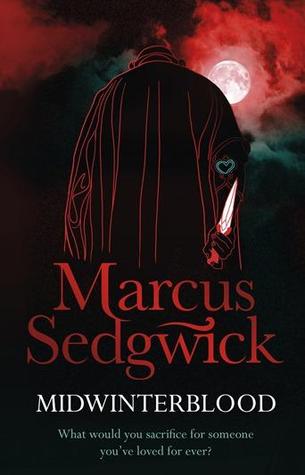Perhaps Fate laid out your life for you like a dress on a bed, and you could either wear it or go naked...
Days of Blood & Starlight by Laini Taylor
(Daughter of Smoke & Bone #2)
Expected publication: November 6th 2012 by Little, Brown & Company
Once upon a time, an angel and a devil fell in love and dared to imagine a world free of bloodshed and war.
This is not that world.
Art student and monster's apprentice Karou finally has the answers she has always sought. She knows who she is—and what she is. But with this knowledge comes another truth she would give anything to undo: She loved the enemy and he betrayed her, and a world suffered for it.
In this stunning sequel to the highly acclaimed Daughter of Smoke & Bone, Karou must decide how far she'll go to avenge her people. Filled with heartbreak and beauty, secrets and impossible choices, Days of Blood & Starlight finds Karou and Akiva on opposing sides as an age-old war stirs back to life.
While Karou and her allies build a monstrous army in a land of dust and starlight, Akiva wages a different sort of battle: a battle for redemption. For hope.
But can any hope be salvaged from the ashes of their broken dream?
Y'all, why is it so hard to write reviews about the ones you love?
Okay - Last year after I read
Daughter of Smoke & Bone,
I asked Laini Taylor to marry me. She had to decline, partly because she's already married, but mostly because she doesn't know me, and both of us are straight. (
Every relationship has its issues, Laini.)
So, fine. We'll take it slow.
Days of Blood & Starlight is maybe less lyrical and beautiful than
Daughter of Smoke & Bone, but somehow better because of it. This isn't to say that
Days of Blood & Starlight isn't still beautifully written and compelling, because I doubt anything Taylor writes wouldn't be. But there was a tendency towards being overwrought in book 1 that sometimes seemed to shove the beauty of the writing in your face. It was obviously lovingly crafted, but sometimes showy as a result. But in
Days of Blood & Starlight, with this much darker aspect of war and genocide at the fore, rather than
just star-crossed love, the floweriness just wouldn't have worked as well, and Taylor seemed to understand this. The story is still beautifully crafted and the writing excellent, but Taylor shows more restraint. She turns her talents to garnering more chills than butterflies; she went in with a knife instead of a quill.
And I love her for it.
I really love the expansion of the world, the new characters we meet, and the new facets of characters we knew (or thought we knew). Karou and Akiva are what one would expect, each dealing with the realizations of who they are and were, and what they and their world have become. Nothing will come easy from here on out, and the milk and honey days of their stolen courtship are a distantly remembered dream. How each deals with this, how each tries to reconcile the things they thought they knew and felt with everything that came
after, every horror that has been visited on the world (and on them) since, adds a nice tension to their story and depth to their characters, but I think it's really the peripheral characters that shine in
Days of Blood & Starlight. Zuzana is fantastic as always, and I love how she just fearlessly throws herself into things. But the new characters of Eretz, or the expansions of the old ones is fantastic, too. (I mean, do I
actually like Liraz? I think I do. I think I might actually be
rooting for her. Who saw
that coming?)
It would be easy to get caught up in the star-crossed romance in a story like this; it would be too easy to swoon and sigh. Many authors would have been okay with just that, but Taylor knows better. Karou and Akiva may have lost something powerful and beautiful, but they are not the only ones who have
lost. In a war, in a genocide, in a mad power struggle,
everyone loses. Everyone
has lost. Taylor doesn't just woe-is-me all over the place for the fleeting lost epic love that was Madrigal-and-Akiva; she uses their story as a toehold onto the unscalable mountain that is Power and Lust and Hate and Retaliation (and Love. And Hope. And a million other things deserving of capital letters). Akiva and Karou are forced to think beyond themselves, to see ramifications and understand the path they walk. It would be easy to give up hope, as Akiva once did; to let themselves be swept up into something "greater" than they, something that takes away the burden of choice.
And I think that's the most beautiful thing about this book, and about Akiva and Karou's story - they
could choose to
not choose; they could throw themselves into vengeance and retaliation and the Greater Goal. But they always choose
choice. They always choose the harder path, the one that means you will do the right thing, but will suffer doing so; the one that means you may lose everything so that others can gain
the chance - just a chance - at something more. This, I think, is the reason that theirs is one of the few "epic love stories" that doesn't make me roll my eyes. Theirs has always been a story of choice, and of
difficult choice at that; theirs has always been a story of sacrifice
and selfishness combined, and there's something painfully honest in that.
In the end, I love what Taylor accomplished in book 2. I love, love, love that she is willing to go dark, but that she always dangles hope. Her vision of the future if things continue as is, is bleak, and she lets the reader know it. Hell, things are bleak
now, and she lets the reader know it. She doesn't flinch away from the potential horrors. But she's also wise not to make the book unrelentingly grim - there are always pinpricks of light in the darkness, spots of humor and love and friendship to remind the characters - and the reader - what is worth fighting for. And because of that - the intertwined dark and light - I liked this more than book 1, which I didn't think was going to happen. Equally, yes, but more? That I did not expect. And I am
very eager to get my hands on book 3 and see what Taylor makes of these two worlds colliding completely...
[As a side note: I did find this really interesting review on Goodreads where the reader had
huge issues with some of the places this book went, and Taylor's treatment of Akiva's character, and more importantly, of genocide. I neither agree nor disagree with her, because I think we approached this book - and maybe reading, in general - very differently, but I do really like what she has to say as a discussion point, and I'm sharing it with you because I think that's one of the beautiful things about a well-written story: it does provoke discussion. Her argument is compelling and valid, and maybe the things that bothered her will bother some of you. So for those of you interested or curious, that review is
here.]





















